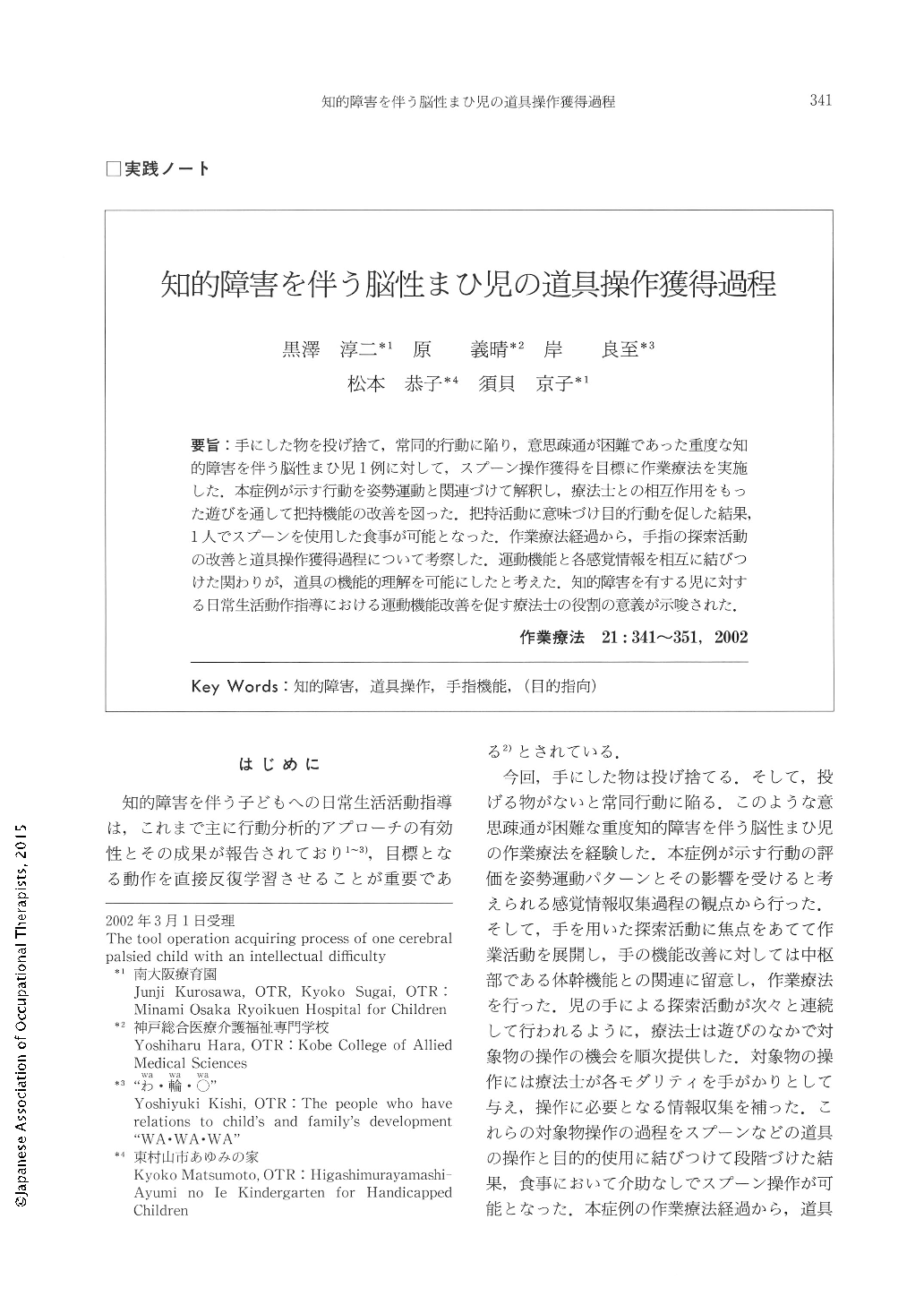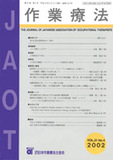Japanese
English
- 販売していません
- Abstract 文献概要
- 1ページ目 Look Inside
- 参考文献 Reference
- サイト内被引用 Cited by
要旨:手にした物を投げ捨て,常同的行動に陥り,意思疎通が困難であった重度な知的障害を伴う脳性まひ児1例に対して,スプーン操作獲得を目標に作業療法を実施した.本症例が示す行動を姿勢運動と関連づけて解釈し,療法士との相互作用をもった遊びを通して把持機能の改善を図った.把持活動に意味づけ目的行動を促した結果,1人でスプーンを使用した食事が可能となった.作業療法経過から,手指の探索活動の改善と道具操作獲得過程について考察した.運動機能と各感覚情報を相互に結びつけた関わりが,道具の機能的理解を可能にしたと考えた.知的障害を有する児に対する日常生活動作指導における運動機能改善を促す療法士の役割の意義が示唆された.
A child, with an intellectual difficulty due to cerebral palsy, was in the habit of throwing away hand-held objects, or the child would lapse into stereotyped behavior. We attempted, with great communicative difficulties, to employ volitional-understanding-enforced OT, in the effort to train the child to take control of hand-held objects such as a spoon. In the effort to teach the child manual control, we interacted with the child, paying particular attention to posture movement, in order to improve grasp function. As a result of our efforts, the patient was able to use a spoon, independently, at mealtime. With regard to the actual OT progress, we considered the improvement of finger explore activities and tool operation acquisition. The connections between the movement function and feeling-derived information made the understanding of tool function possible. With regard to activities of everyday life, this therapy process shows that it is important for OT therapists to be aware of the importance of improving functional movement in children with intellectual difficulty.

Copyright © 2002, Japanese Association of Occupational Therapists. All rights reserved.


